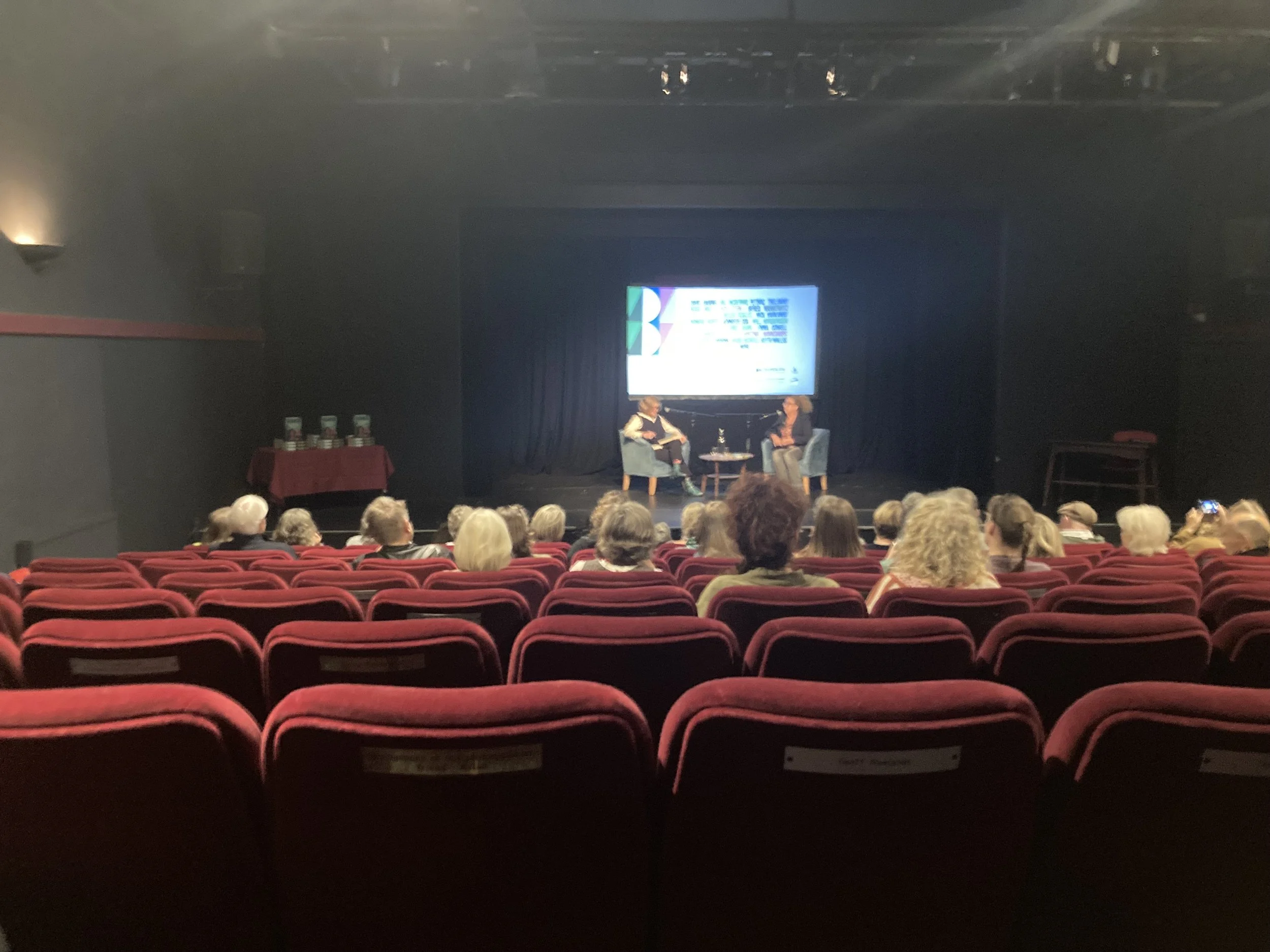Monique Roffey at the Poly
On Saturday 19th of October, I had the pleasure of going to the Poly in Falmouth to listen to author Monique Roffey talk with Cathy Rentzenbrink about her newest novel, Passiontide, as part of the Falmouth Book Festival this year.
It was an author talk I was, quite unquestionably, excited about: I was amazed by The Mermaid of Black Conch, Roffey’s novel which won the Costa Book of the Year in 2021. I don’t think I had ever read before a book with such a different narrative voice than what I was used to reading, and the relationship between David and Aycayia was sowed with both a tenderness and an expectant adventure.
The quality of Roffey’s writing continues in Passiontide - it is set in St Colibri, a fictional island though its identity is inspired by Trinidad, where the author was born. The story opens with the voice of Sora Tanaka, a steel-pan player who is murdered under a cannonball tree at the end of the carnival, her body discovered on Ash Wednesday. In Roffey’s event at the Poly, I learned that this was inspired by the real murder of a Japanese steel-pan player, Asami Nagakiya, in Port of Spain, In Trinidad in 2016. Roffey wanted Tanaka’s voice to open and close the novel, for the character to claim a central role: one of the themes of Passiontide is women’s collective stand against the systemic violence towards them. The midpoint of the novel, which Roffey gave a delightful reading of during the event, is a protest. The ‘#AmINext reflects the #MeToo movement; and Roffey herself described the novel as a Caribbean #MeToo, in which the women use various tools as a means of protest: from marches to sex strikes to bringing spiritual, feminine power. It was fascinating to learn about Oshun and Black Madonna: the women in Passiontide call on the blessing of these figures, a Yoruba goddess of love, fertility, and abundance, a source of strength for women; and Black Madonna - Roffey recalls seeing a spiritual procession led by female activists, the figure is brought to the sea to be purified. There does feel, when reading the novel and listening to the author talk about it, like there is a collective spirit behind the women which binds their community in resilience against the violence done unto them.
In the talk, Roffey also discussed how the writing and publishing scene has changed since she first began writing, when women in writing were not taken as seriously as men; no doubt that as an author she has worked to prove the talent of women writers, getting her novel The White Woman on the Green Bicycle shortlisted for the Orange Prize in 2010 - and since then, the presence of her works in literary awards has only grown and grown. Roffey acknowledged the independent publisher Peepal Tree Press, which specialises in Caribbean literature; they published The Mermaid of Black Conch when many other publishing houses rejected the opportunity. To read such stories published by such presses only gives more heart to the importance of decolonising bookshelves; and furthermore, it was wonderful that the Falmouth Book Festival invited Roffey to come and talk (for the second time) as an author born in Trinidad, and telling stories from the Caribbean.
Edited by Nico Horton

